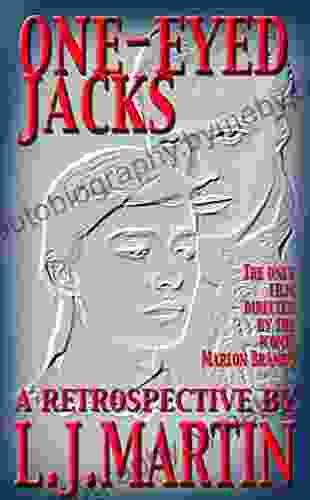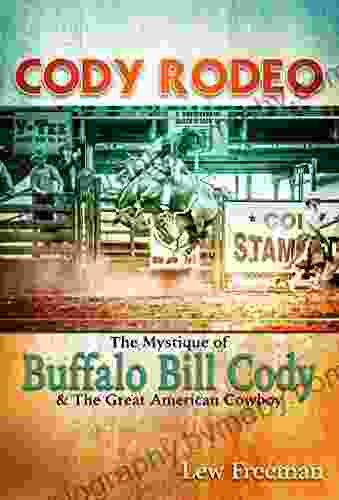: Marlon Brando's Unparalleled Cinematic Legacy
Marlon Brando, an enigmatic and legendary figure in the annals of cinema, left an indelible mark on the silver screen with his raw talent and iconic performances. Beyond his acting prowess, Brando also ventured into the realm of filmmaking, leaving behind a singular masterpiece that stands as a testament to his artistic versatility. "The Only Film Directed By Marlon Brando" is a cinematic gem that offers a glimpse into the mind of one of the greatest actors of all time.
The Genesis of "One-Eyed Jacks": Brando's Directorial Ambitions
In 1961, at the height of his career, Marlon Brando embarked on an ambitious project to direct his own film. Driven by a desire to explore themes close to his heart, he chose "One-Eyed Jacks" as his directorial debut. The film, a Western epic, was based on the novel "The Authentic Death of Hendry Jones" by Charles Neider.
5 out of 5
| Language | : | English |
| File size | : | 7451 KB |
| Text-to-Speech | : | Enabled |
| Screen Reader | : | Supported |
| Enhanced typesetting | : | Enabled |
| Word Wise | : | Enabled |
| Print length | : | 169 pages |
| Lending | : | Enabled |
Brando's vision for "One-Eyed Jacks" was grand, and he poured his soul into the production. He meticulously crafted the screenplay, consulted with Native American advisors for authenticity, and handpicked a stellar cast that included himself in the lead role, alongside Karl Malden, Ben Johnson, Pina Pellicer, and Katy Jurado.
A Cinematic Canvas: Exploring Themes of Betrayal and Revenge
"One-Eyed Jacks" tells a gripping tale of betrayal, revenge, and the complexities of the human condition. The story revolves around Rio (played by Brando),a former outlaw who returns to his old gang after years of hiding. Haunted by the memory of his best friend's treachery, Rio seeks vengeance while grappling with his own demons.
Brando's directorial style is evident throughout the film. He employs stunning cinematography, capturing the vast landscapes of the American West in all their rugged glory. The use of shadows and close-ups creates an atmosphere of intimacy and tension, drawing the viewer into Rio's tormented psyche.
An Intimate Portrait: Marlon Brando's Revolutionary Acting
In addition to his directorial duties, Brando also delivers a tour-de-force performance as Rio. His portrayal is both raw and introspective, showcasing his unparalleled ability to convey complex emotions. From the simmering anger in his eyes to the subtle anguish in his expressions, Brando brings Rio to life with startling authenticity.
Brando's performance in "One-Eyed Jacks" transcends the screen, becoming a masterclass in acting. He effortlessly balances vulnerability and strength, creating a character that is both relatable and enigmatic. It is a testament to his genius that he could simultaneously direct and act in a film of such exceptional quality.
Critical Acclaim and Enduring Legacy
Upon its release in 1961, "One-Eyed Jacks" garnered critical acclaim for its stunning visuals, gripping narrative, and Brando's unforgettable performance. The film was nominated for an Academy Award for Best Cinematography (Color) and has since gained recognition as a Western classic.
Over the years, "One-Eyed Jacks" has continued to captivate audiences with its timeless themes and cinematic artistry. It stands as a testament to Marlon Brando's versatility and his unwavering commitment to creating meaningful cinema.
: A Cinematic Masterpiece by a Legendary Icon
"The Only Film Directed By Marlon Brando" is a cinematic treasure that showcases the boundless talents of one of the greatest actors of all time. Through its stunning visuals, gripping narrative, and Brando's unforgettable performance, the film explores themes of betrayal, revenge, and the complexities of the human condition.
As a testament to Brando's legacy, "One-Eyed Jacks" remains an enduring masterpiece that continues to inspire and captivate audiences. It is a film that transcends time, showcasing the artistry and profound storytelling that made Marlon Brando an icon in the annals of cinema.


























































































